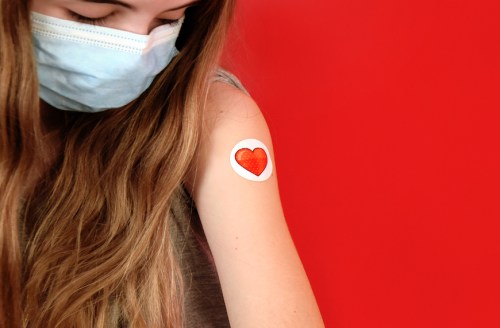An Epidemiologist Breaks Down Exactly What ‘Fully Vaccinated’ Means
We asked epidemiologists to explore whether or not the term "fully vaccinated" applies if you haven't yet gotten a COVID-19 booster shot.

Earlier this year, the Centers for Disease Control and Prevention (CDC) determined that people are fully vaccinated against COVID-19 two weeks after their second dose of a two-shot Moderna or Pfizer-BioNTech vaccine, or two weeks after a one-shot Johnson and Johnson vaccine. In August, the CDC began recommending third doses of the COVID-19 vaccine for those who are immunocompromised. And in December, the CDC advised everyone 16 years old and up to get a booster shot six months after their last vaccine dose if they’re able. These are promising developments: COVID-19 vaccine efficacy wanes over time, and boosters help maintain immunity. Still, these changes might make you wonder if the term “fully vaccinated” has a new meaning.
Experts in This Article
a University of California, Irvine professor of Epidemiology &
Dean of School of Health Sciences and Practice at New York Medical College
“The definition of ‘fully vaccinated’ has not changed,” says Karen Edwards, MS, PhD, chair and professor of epidemiology and biostatistics at the University of California Irvine Program in Public Health. So, your original vaccine status still holds, whichever type you got. Regarding variants, “All the vaccines are highly effective against Delta and do offer protection against Omicron,” says Dr. Edwards.
“It is important that those who are not fully vaccinated to get vaccinated, and those who are eligible for a booster, get [it] as soon as they are eligible.” – Karen Edwards, MS, PHD
Even though you may be fully vaccinated after your initial vaccine, experts still recommend the booster. “Although many official websites have not updated their terminology, both CDC and FDA now recommend a booster dose at least six months after two-doses of Pfizer (BioNTech) or Moderna vaccine and at least two months after a one-dose Johnson & Johnson (Janssen) vaccine,” says Robert Amler, MD, the Dean of School of Health Sciences and Practice at New York Medical College and a former Chief Medical Officer at the CDC Agency for Toxic Substances and Disease Registry, where he specialized in infectious diseases.
This is because emerging evidence suggests that COVID protection wanes some months after completion of a two-dose or one-dose vaccination schedule, but it improves considerably after a single-dose booster, Dr. Amler says, adding that the additional dosage will strengthen the protection against COVID infections and complications.
And, in light of the Omicron variant—which is more transmissible than the Delta variant—preliminary data suggest that a booster shot increases the immune response and will provide more protection, says Dr. Edwards. “It is important that those who are not fully vaccinated get vaccinated, and those who are eligible for a booster get [it] as soon as they are eligible.”
And, if you were one of the many people to get COVID, you’re also somewhat protected—but you should still get vaccinated and boosted. “Persons who previously had ‘natural’ COVID infection also enjoy better protection from COVID when they get vaccinated after the appropriate time period, ” Dr. Amler says. “Typically at least 90 days after the last day they had COVID symptoms.”
So, while “fully vaccinated” definitions haven’t officially changed since before summer, it might soon, given current data and the spread of variants. Even if your employer or the restaurant around the corner doesn’t require a booster, it’s best to get ahead of guidelines, especially since the booster can make you even more “fully” vaccinated as you go out and about this winter.
Oh hi! You look like someone who loves free workouts, discounts for cutting-edge wellness brands, and exclusive Well+Good content. Sign up for Well+, our online community of wellness insiders, and unlock your rewards instantly.
Sign Up for Our Daily Newsletter
Get all the latest in wellness, trends, food, fitness, beauty, and more delivered right to your inbox.
Got it, you've been added to our email list.










